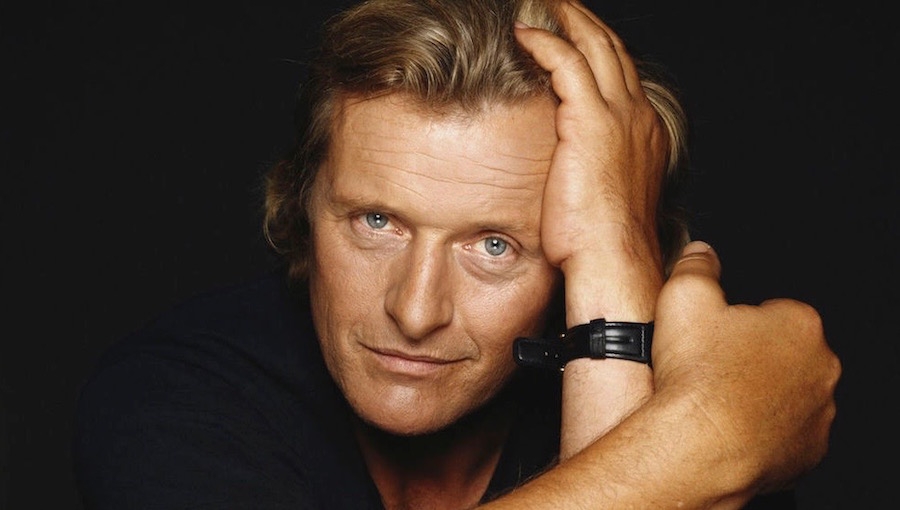… All those moments will be lost in time, like…tears in rain. Time to die..
Wednesday news broke that Danish actor Rutger Hauer had passed away at the age of 75, and, to me, he was a person whose 1980s films became life markers during my twenties. Probably best known as Roy Batty, leader of a small group of rogue Replicants in Ridley Scott’s 1982 cult classic, Blade Runner; however Hauer had been a prolific actor with some 170 credits spanning the late 1960s to as recent as this year.
I remember Hauer’s first American role as Heymar “Wulfgar” Reinhardt in Sylvester Stallone and Billy Dee Williams’ gritty cop flick, Nighthawks (1981, dir. Bruce Malmuth and Gary Nelson). In the trailer, Stallone is touted as a deadly cop with over 50 kills while Hauer’s character is an international terrorist hoping to engage in some pleasure as he is welcomed to New York by a customs officer. I think I saw the film once or twice when it first came out, and although I do not remember the disco-influenced fashion and barely there eyewear, Hauer had a unique cosmopolitan presence that set him apart from the American actors of the time.
Hauer landed on the small screen in the television movie dramatization, Inside the Third Reich (1982), in which he starred as Albert Speer, Adolf Hitler’s architect. Although Hauer was convincing in this role, he was just as adept playing Roy in Blade Runner which released the same year. In an interview two years ago between RadioTimes’ Huw Fullerton and Hauer, the actor explained how he shaped the now famous “Tears in Rain” monologue, resulting in a succinct, touching, and personal soliloquy that came to be Hauer’s defining cinematic moment in his career and in the history of cinema itself.

A personal favorite, Ladyhawke (1985, dir. Richard Donner) is a film I revisit every so often, because it is a well-structured sword and sorcery tale balanced with wit and romance. Hauer’s Navarre as the stoic, reluctant hero is exceptional and contrasted nicely with Michelle Pfeiffer’s Isabeau and Matthew Broderick’s Gaston. Some might think it sappy, but, to me, the message of romantic love that stands the test of separation and then ultimately triumphs over evil always leaves me smiling and releasing a few errant tears by the ending credits. Additionally, the music is fantastic, blending rock and fantasy; the soundtrack flavor may sound familiar to some – it was produced by Alan Parsons of the studio band, Alan Parsons Project.
It is a fine line between opposites: Hauer is the irredeemable and villainous John Ryder in Robert Harmon’s 1986 The Hitcher. Although it only broke even in the box office, Hauer shook off his dashing Navarre mantle in order to deliver a disturbing maniacal performance. Most critics panned the film, but in a 1990 newspaper article in The Victoria Advocate, Hauer explained that “they [critics] felt it was indecent exposure, something not suitable for children. It was the devil talking. Actually, the film was an allegory. The passenger [John Ryder] represented evil. That’s all it was.” The film spawned a sequel, The Hitcher II: I’ve Been Waiting (2003, dir. Louis Morneau), and a remake (dir. Dave Meyers) in 2007 starring Sean Bean as Ryder. Both pale in comparison to Hauer’s version who proved he was comfortable as hero, anti-hero, and villain.

Hauer went on to star in critically acclaimed films such as Escape from Sobibor (1987, dir. Jack Gold) and The Legend of the Holy Drinker (1988, dir. Ermanno Olmi); however, I saw Blind Fury (1989, dir. Phillip Noyce). In this film, Hauer is a Vietnam vet with martial arts skills who helps a father rescue his son. It was not a great film, but Hauer continued to show his versatility, this time with comedy.
By the 1990s, I moved overseas and missed all of Hauer’s films with the exception of Buffy the Vampire Slayer (1992, dir. Fran Rubel Kuzui) which I watched years later. In the 2000s, I sought out to watch some of Hauer’s early films, especially those in which he paired with director Paul Verhoeven on the 1973 Turkish Delight and Soldier of Orange (1977). That said, his more recent roles as Cardinal Roark in Sin City (dir. Frank Miller, Robert Rodriguez, and Quentin Tarantino) and as Earle in Batman Begins (dir. Christopher Nolan), both in 2005, proved he was still a venerable presence regardless of the role. The last Hauer performance I saw was in Luc Besson’s 2017 Valerian and the City of a Thousand Planets in which he played the President of the World State Federation, and, sadly, I barely remember him in it.
Although he will always be remembered for his portrayal of Roy Batty, Hauer was a versatile performer regardless of the role and the genre. In fact, Hauer (and Patrick Quinlan) wrote about his lengthy career in All Those Moments: Stories of Heroes, Villains, Replicants, and Blade Runners (2007). It is an enjoyable read and worth picking up either a physical copy or on Kindle, especially if you are a fan. And, if you are feeling the impact of his death like me, you might need to binge watch some Hauer films – there are a few on Netflix, as well as on Amazon Prime – and just once more relish Hauer as a true artiste who is now lost like tears in the rain.
Image credits: Hauer photo by Terry O’Neill/Getty; Hauer in Ladyhawke; and Hauer as John Ryder in The Hitcher from IMDb

